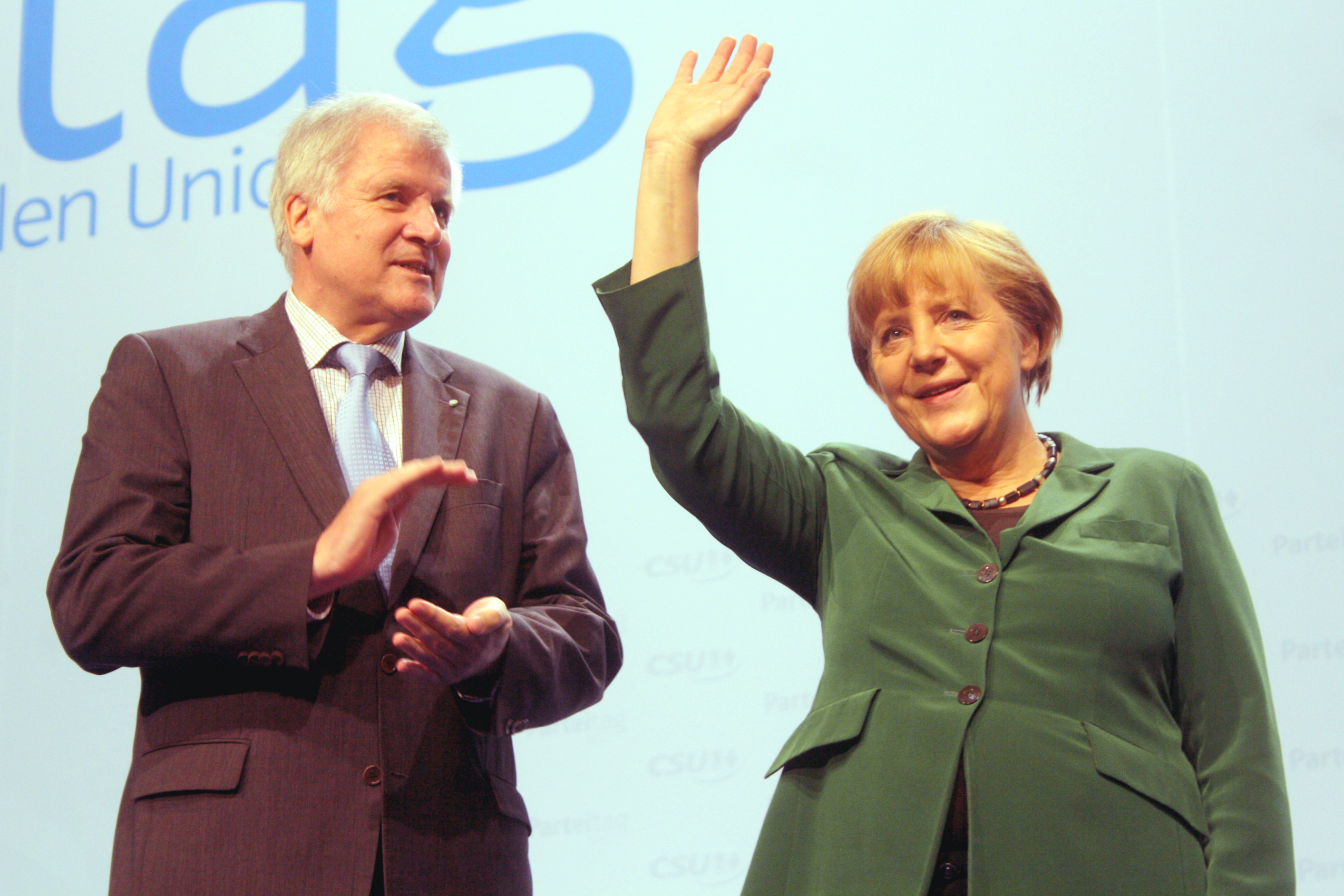Bei
den Nationalratswahlen haben die beiden (vom Ergebnis nicht mehr allzu) „großen“ Parteien jeweils leicht verloren (SPÖ 27%, ÖVP
24%); trotzdem werden sie aller Voraussicht nach ihre Koalition
fortsetzen (die - unterbrochen von einem schwarz-blauen Intermezzo 1999 bis 2006 - seit 1986, also seit 27 Jahren, regiert). Zusammen kamen die Regierungsparteien aber nur noch auf gerade mal
50%. Die rechtspopulistische FPÖ ist nach ihrem Bruch Mitte des letzten Jahrzehnts endgültig wieder zur dritten - fast (wieder) zur zweiten - Kraft geworden und holte mehr als 20%, bleibt aber wohl bei der Regierungsbildung außen vor.
 |
| Ergebnisse der Nationalratswahl 2013 in Österreich (auf Gemeindeebene): rot= Mehrheit in der Gemeinde/dem Wahlkreis für die SPÖ, schwarz=Mehrheit für die ÖVP, blau= Mehrheit für die FPÖ, grün= Mehrheit für die Grünen |
Die Grünen erzielten mit 12,3% ihr bestes Ergebnis
der Geschichte, gewannen aber trotz der Skandale, in die alle anderen
etablierten Parteien verwickelt waren, nur leicht hinzu. Die
Rechtspopulisten gewannen, weil sie sich als neue Kraft, die mit der
Korruption „aufräumt“, inszenieren konnten ("TeamStronach", 5,7%), oder auch, obwohl sie wie keine andere in Finanz-Skandale (z.B. den um Karl-Heinz Grasser) verwickelt waren, aufgrund geschickter demagogischer
Rattenfängerei und der massenhaften Verbreitung einfacher
(Protest-)Parolen, massiv hinzu (FPÖ, 20,6%, plus 3%); sie gewannen
vermutlich viele Stimmen von ehemaligen ÖVP-Wählern, (nicht nur,
aber v.a. auch) auf dem Land. Dort (v.a. in der Steiermark) wurden die
Freiheitlichen mit 25% oder mehr vielerorts sogar stärkste Kraft; aber auch im
(nur noch sprichwörtlich?) "roten" Wien holten sie
etwa 20%. Nur
einige Prozent fehlten, und die FPÖ, die ihr historisch zweitbestes Ergebnis (nach 1999, unter Jörg Haider, damals 27%) holte, wäre zur zweitstärksten
Fraktion im Nationalrat geworden (wie schon 1999, als sie gleich viele Mandate (52) wie die VP errang; dieses Mal nur zehn weniger).
Das
Negative an diesem Ergebnis ist nicht nur, dass die
Rattenfängerei (mal wieder) gefruchtet hat. Es ändert sich auch
ansonsten nicht viel in der politischen Landschaft Österreichs. Das
Land steuert aber parteien- und fraktionstechnisch auf "Weimarer
Verhältnisse" zu, d.h. viele (nun sechs) Fraktionen im
Parlament und eine an den Rändern polarisierte Parteienlandschaft.
Mit dem Unterschied, das nur ein Rand stark ist, nämlich der rechte
(mit insgesamt mehr als 25% für rechtspopulistische Parteien (FPÖ
und Stronach)). Das heißt konkret: Erstens, eine „große
Koalition“ (nicht mehr ganz so groß wie 2008, heuer kommen SPÖ
und ÖVP nur noch auf gerade mal 50% (s.o.)) bleibt die einzige
einigermaßen stabile Regierungskoalition (mit allerdings bei
aktuellem Stand nur noch sieben Sitzen Mehrheit). Zweitens, es gibt
weiterhin eine klare rechte Mehrheit in der Alpenrepublik. Das
(einzig) Positive ist: Der rechte Rand bleibt von der Regierung
ausgeschlossen. Die Koalition der Mitte unter Kanzler Faymann (SPÖ) und Vizekanzler und Außenminister Spindelegger (ÖVP) wird (wahrscheinlich)
fortgesetzt.
Die Opposition wird nach wie vor, aber nun
stärker denn je, von einer starken rechtspopulistischen Partei, der
FPÖ, angeführt werden, die gegenüber ihrem Ergebnis von 2008
zulegen konnte. Die in einige Korruptionsaffären verwickelten und
zum Teil bei den Landtagswahlen (z.B. Salzburg) bereits abgestraften
großen Parteien ÖVP und SPÖ bleiben dennoch gemeinsam an der
Macht, aber die ebenfalls bis ins Mark korrupte FPÖ konnte diese
Korruptions-Skandale, die sie in Kärnten die Macht gekostet hatten,
jedoch erfolgreich überspielen und mithilfe plumper Protestrhetorik
punkten. Diese wurde befördert von der niveauarmen Mainstream-Presse
(„Kronen-Zeitung“), den berüchtigten Gratiszeitungen („heute“
und „Österreich“), durch massenhafte Werbung in allen Medien und
Plakatierung in Dimensionen, die die der anderen Parteien an vielen
Orten deutlich übertraf. Die erfolgreiche Inszenierung als
Protestpartei („Wahlzettel als Denkzettel für die Regierung“)
funktionierte, mit der zentralen Behauptung, im Gegensatz zu allen
anderen, v.a. aber den etablierten Parteien, sich in „Nächstenliebe“
(eine unglaubliche Pervertierung dieses christlich-humanistischen
Wortes) gegenüber allen "Inländern" („wir sind
Inländerfreunde, keine Ausländerfeinde“) deren sich angeblich
konstant verschlechternder Situation anzunehmen (in einem Land, das
in Europa wirtschaftlich so gut dasteht wie kein anderes, z.B.
niedrigste Arbeitslosigkeit). Mit dem Einschlagen auf schwache
Fremde, nämlich angebliche „Asylbetrüger“, und mit dem
Ausspielen des "österreichischen" Prekariats gegen das
"ausländische" (die angebliche Benachteiligung von
Inländern gegenüber Ausländern z.B. bei Sozialwohnungsvergabe),
und dem Wettern gegen "die da oben" punktete Heinz-Christian
Strache, der Demagoge an der Spitze der FPÖ.



